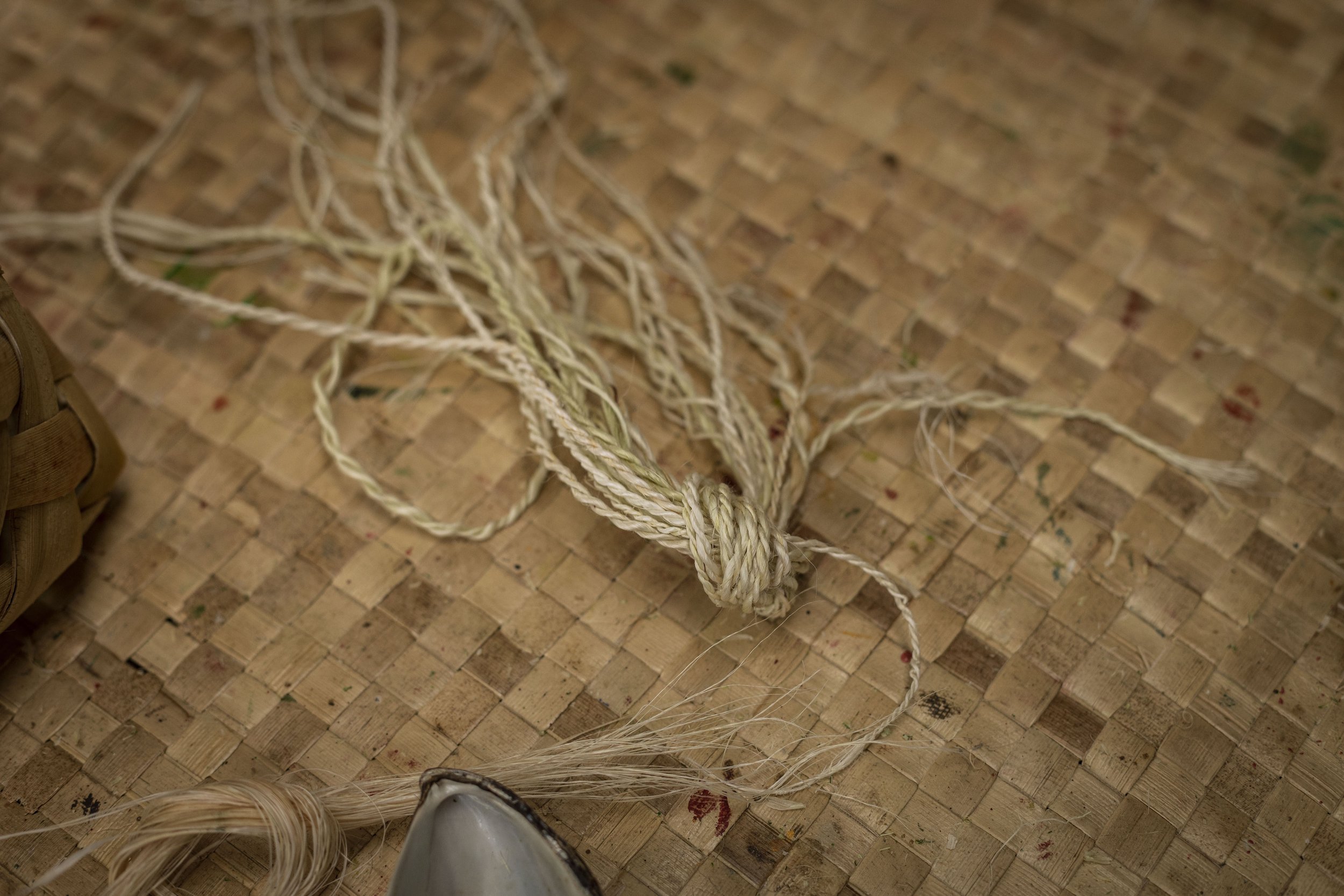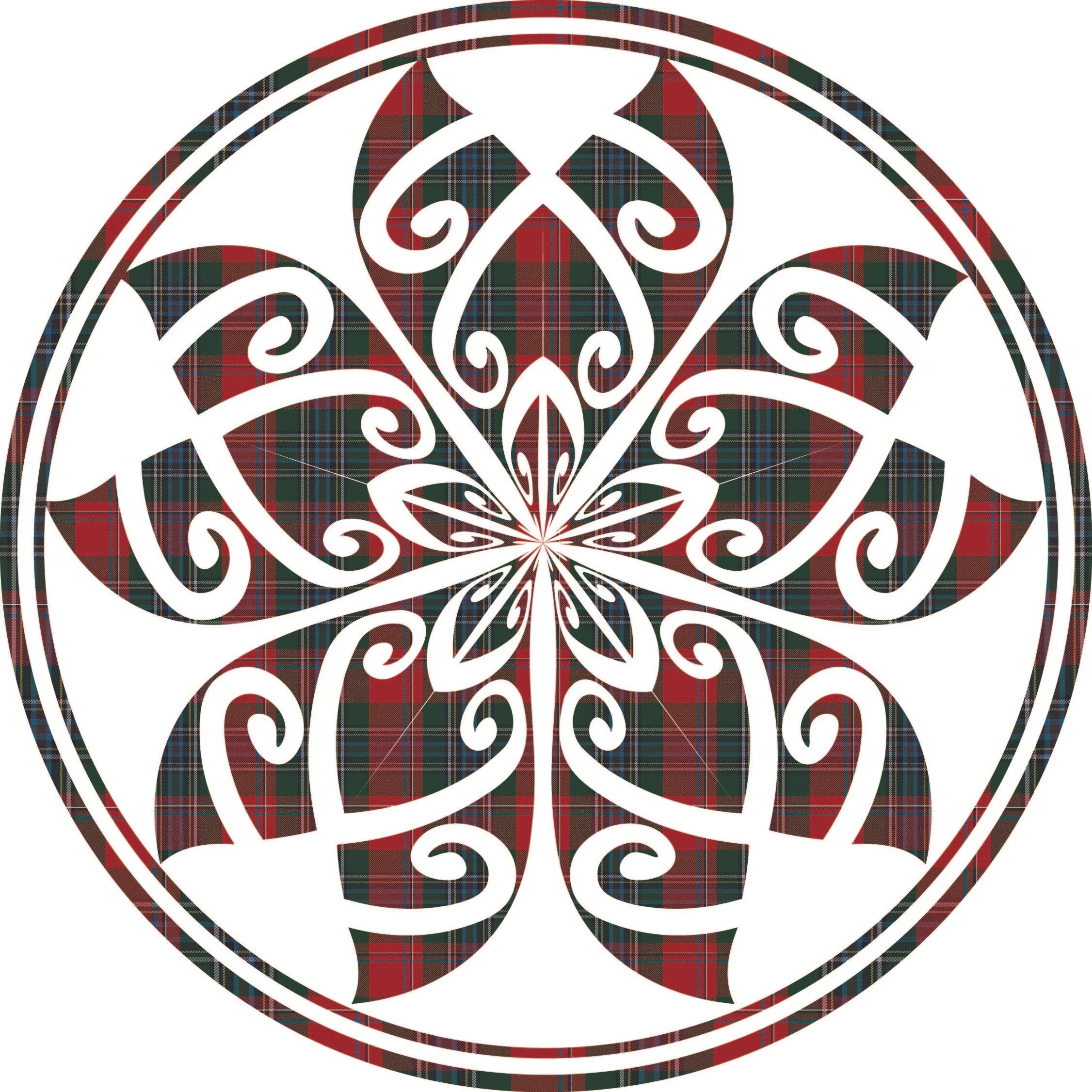Wānanga for Tangata Whenua
Sunday 30th July
10 - 4pm (FULLY BOOKED)
Studio 30 and Community Room
Free (places limited so bookings essential)
Photo by Maija Stephens
Facilitated by
Matt Tini, Maija Stephens, Renati Waaka and Elena Rei
Ko te whiri,
Ko te whatu,
Ko te whakairo,
Nāu rā e Hine,
Nau mai e Hine ki Te Whare Pora.
The kaupapa of this wānanga is to hold space for tangata whenua and build connections through kōrero on what it means to be Māori in contemporary Aotearoa and how we connect with customary practices and knowledges in urban centres.
This wānanga is open to tangata whenua who have an interest in working with harakeke through waitae (dyeing), paper making and raranga. We welcome any level of ability, especially newcomers as this wānanga has been designed for beginners.
When booking please let us know whether you have a preference for either; dyeing harakeke, paper making and or raranga.
All materials will be provided including kai.
Please note: This wānanga is specifically for Tangata Whenua.
Maija Stephens
Maija Stephens (Ngāti Kahungunu, Rongomaiwāhine, Pākehā) is an artist/photographer based in Te Whanganui-ā-Tara. She is committed to enhancing spaces through the expression and reclamation of her indigeneity. Her practice surrounds issues concerning te taiao (the environment), kaitiakitanga, whakapapa, and her experience as a wahine māori. She aims to indigenise the medium of photography itself through the way she wields the camera by engaging with mātauranaga māori. This takes form in conceptual, studio and documentary photography/videography.
Maija is currently in her fourth year at Massey University’s Toi Rauwhārangi.
Elena Rei
Elena Rei (Ngāti Toa Rangatira, Ngāruahine, Samoa) is an artist and textile practitioner based in Porirua. Her practice focuses on investigating textile processes, the whakapapa of natural fibres and the materiality of patterns drawn from te taiao. She works with multiple techniques, guided by Mātauranga Māori, exploring notions of whakapapa, kaitiakitanga, mauri and reconnection. Inspired by atua wāhine, time and space concepts, and the ways her tūpuna used customary materials, her mahi toi aims to make connections between people and place.
Elena is a 2022 graduate from Toi Rauwhārangi with a Bachelor of Design with First Class Honours and a major in Textiles. She is currently exploring her art practice using earth pigments as well as learning the customary art form of tukutuku with her whānau.
Artists Biographies:
Matt Tini
Matt Tini (Waikato, Ngaati Mahuta, Ngaati Tiipa, Ngāti Rakaipaaka, Ngāti Kahungunu) is an artist based in Te Whanganui-a-Tara. His practice is an exploration of self, reflecting on his experiences with decolonization and reconnecting with his Maaoritanga. Working across various media such as photography, video, painting and installation, Matt questions and considers notions of authenticity in relation to self-expression and grapples with the complexities of being Maaori in a contemporary Aotearoa New Zealand.
Renati Waaka
Renati Waaka (Te Arawa, Tainui) is an interdisciplinary artist based in Pōneke. Their work is an exploration of the intersections between their queer and Māori identity. Informed by matauranga Māori, whakapapa, and whenua, Renati reflects on what it is to be Takatāpui in a decolonising Aotearoa. Through photography, video, performance, and object, Renati navigates questions of self, place, and whakapapa.
Renati graduated from Victoria university of Wellington, School of Architecture and Design in 2021 with a Bachelors degree of Design innovation, majoring in Communication Design.
Renati is now doing their masters in Fine art at Massey university.
He Rito
2 - 29 September
He Rito follows the hands of four rangatahi Māori artists who reconnect to and work with harakeke. As their practice enters into te whare pora, they enhance their connection to place, te taiao, and to their ancestry - promoting this journey through community based wānanga. Harakeke is explored through photography, sound and textile design which responds to notions of kaitiakitanga, reclamation and knowledge transmission..







